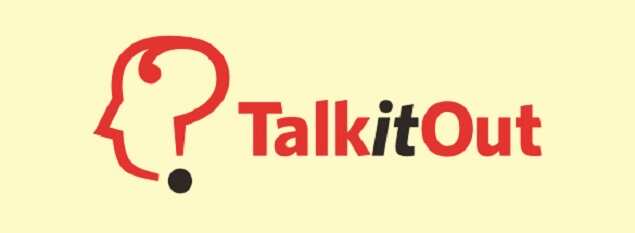
In 2017, I had just shut down my second startup. Nearly broke, burnt out, with no plans. Mentally, I was depressed, with a complete lack of self-confidence and self-worth. “Had I wasted 4 years of prime youth?” I took career failure very, very personally. It wasn’t my first bout of depression, but it was the most severe.
I knew that I should move forward, but I had no willpower or energy to do so. I could not accept the imperfect past, and I beat myself up in the present for it. For not being better or smarter in the past. And for not being better or smarter in the present to get over it.
I didn’t get out of bed on most days because I didn’t want to face the world. In my isolation, I kept playing an endless loop of every single mistake I made, running in an infinite maze, trying to understand where I went wrong or what I could have done better. Sleep was a welcome escape from my thoughts. I had no zest for life.

I couldn’t forgive myself, despite wanting to. Despite needing to. My pain was neither rational nor irrational. But it was real.
Shutting off mentally, emotionally, and physically felt easy. Asking for help felt extremely difficult.
All the platitudes on dealing with failure did not prepare me for the real thing. It was torture. I didn’t expect anyone to understand, didn’t feel worthy of asking anyone for help. And my ego didn’t permit me to seek professional help. I kept digging a deeper hole for myself.
I was not okay. And I could not see how I would ever be okay.
Today, I am okay. On most days.
What worked for me? There was no single thing, no single event, and no single chat. No silver bullet. It was a gradual process that continues to this day.
A few things did help me immensely:
Love, kindness, patience, and compassion — from my family, partner, friends, and mentors — slowly brought me back from the mental hole. The biggest revelation to me was that people still cared. Cared for me as a person. Regardless of my accomplishments, or lack thereof. My self wasn’t determined merely by my career anymore.
On that bedrock, I gained perspective and gratitude. Perspective, that my hardships are objectively easier compared to countless humans across millennia who have endured terrible things — poverty, slavery, famine, wars, and worse — many of which continue to inflict people today.
Gratitude, for people who cared enough to help. For the opportunity to have strived for something I deeply cared about, even if I failed in this attempt. For the opportunity to bounce back. It did not mean that my issues were suddenly insignificant or unimportant. They were still real. This just gave me a vantage point outside my own thoughts.
Listening to others' stories of dealing with such issues gave me strength. I am forever grateful for their empathy, their courage to share, and their patience to listen. The book which spoke to me most was Victor Frankl’s ‘Man’s Search for Meaning’. He recounts his experiences as a prisoner in Nazi death camps, in the most inhuman circumstances, and shares his discovery that the core human drive is to pursue meaning.
His philosophical view is that suffering is not optional, but we can choose how we deal with it, find meaning in it, and use it to move forward. Meaning can be found not just in grand endeavors, but also in seemingly insignificant experiences on a daily basis.
To quote — “We who lived in concentration camps can remember the men who walked through the huts comforting others, giving away their last piece of bread. They may have been few in number, but they offer sufficient proof that everything can be taken from a man but one thing: the last of the human freedoms — to choose one’s attitude in any given set of circumstances, to choose one’s own way.”
Slowly accepting my imperfect self was liberating. I had a profound ego dissolution, triggered by many inputs from others. I realized that I can either choose to live in my head, in the imperfect past and uncertain future. Or I can live in the real world in the present. One day at a time.
I started forgiving myself and allowed myself time to heal. The book ‘Siddhartha’, by Herman Hesse, helped a lot. Meditation and exercise helped too.
After a few months, I slowly got back on my feet, thanks to the enormous generosity of many people who gave me another shot and backed me. I am eternally grateful to them.
I eventually went to a therapist, after a while. It was life-changing. I cannot recommend this strongly enough. In hindsight, I should have gone sooner. The act of unburdening without fear of judgment is liberating and reassuring. If you have ever wanted to see a therapist but retracted, please reconsider.
An important mental barrier I broke regarding therapy was to treat it simply like going to a doctor for help, just as you would for a serious physical injury or disease.
Important to reiterate that I am no expert in mental health. I still go through depressive phases. I am still learning how to cope better. Everyone’s struggles are unique. No generic solution or advice will work. It takes time.
Privilege is an important caveat. I am cognizant of my privilege, it gave me the opportunity to get into this mental mess (quitting a dream job to startup), and to get out of it (access to people, opportunities and financial stability). However, mental health can inflict anyone, regardless of age, gender, stature, wealth, personality, or background. We shouldn’t have to wait until we’re ‘successful’ to talk about failure.
If you are struggling, you have my deep and sincere empathy. I hope you find people and things that help you.
If you know someone close who is struggling and want to help but don’t know how, a few pointers I’ve found useful over the years -
Don’t judge. Don’t trivialise or share platitudes. But don’t give up on them.
Do listen. Do give them space, but check in occasionally.
Most importantly, treat them like a normal person.
It’s okay to celebrate achievements, be happy, and have aspirations. It’s also okay to have insecurities, fears, and anxieties. Sometimes the balance gets skewed, and we suffer alone in silence for fear of being seen as ‘weak’.
In those painful and infinite moments, please know — you don’t have to suffer alone.
Rachit Gupta is an investor at Sequoia Capital.
Write in: To share your story or get advice, write to us at talkitout@timesgroup.com, with your question, name and place. But if you wish to stay anonymous, do indicate that in your email.
I knew that I should move forward, but I had no willpower or energy to do so. I could not accept the imperfect past, and I beat myself up in the present for it. For not being better or smarter in the past. And for not being better or smarter in the present to get over it.
I didn’t get out of bed on most days because I didn’t want to face the world. In my isolation, I kept playing an endless loop of every single mistake I made, running in an infinite maze, trying to understand where I went wrong or what I could have done better. Sleep was a welcome escape from my thoughts. I had no zest for life.

I couldn’t forgive myself, despite wanting to. Despite needing to. My pain was neither rational nor irrational. But it was real.
Shutting off mentally, emotionally, and physically felt easy. Asking for help felt extremely difficult.
All the platitudes on dealing with failure did not prepare me for the real thing. It was torture. I didn’t expect anyone to understand, didn’t feel worthy of asking anyone for help. And my ego didn’t permit me to seek professional help. I kept digging a deeper hole for myself.
I was not okay. And I could not see how I would ever be okay.
Today, I am okay. On most days.
What worked for me? There was no single thing, no single event, and no single chat. No silver bullet. It was a gradual process that continues to this day.
A few things did help me immensely:
Love, kindness, patience, and compassion — from my family, partner, friends, and mentors — slowly brought me back from the mental hole. The biggest revelation to me was that people still cared. Cared for me as a person. Regardless of my accomplishments, or lack thereof. My self wasn’t determined merely by my career anymore.
On that bedrock, I gained perspective and gratitude. Perspective, that my hardships are objectively easier compared to countless humans across millennia who have endured terrible things — poverty, slavery, famine, wars, and worse — many of which continue to inflict people today.
Gratitude, for people who cared enough to help. For the opportunity to have strived for something I deeply cared about, even if I failed in this attempt. For the opportunity to bounce back. It did not mean that my issues were suddenly insignificant or unimportant. They were still real. This just gave me a vantage point outside my own thoughts.
Listening to others' stories of dealing with such issues gave me strength. I am forever grateful for their empathy, their courage to share, and their patience to listen. The book which spoke to me most was Victor Frankl’s ‘Man’s Search for Meaning’. He recounts his experiences as a prisoner in Nazi death camps, in the most inhuman circumstances, and shares his discovery that the core human drive is to pursue meaning.
His philosophical view is that suffering is not optional, but we can choose how we deal with it, find meaning in it, and use it to move forward. Meaning can be found not just in grand endeavors, but also in seemingly insignificant experiences on a daily basis.
To quote — “We who lived in concentration camps can remember the men who walked through the huts comforting others, giving away their last piece of bread. They may have been few in number, but they offer sufficient proof that everything can be taken from a man but one thing: the last of the human freedoms — to choose one’s attitude in any given set of circumstances, to choose one’s own way.”
Slowly accepting my imperfect self was liberating. I had a profound ego dissolution, triggered by many inputs from others. I realized that I can either choose to live in my head, in the imperfect past and uncertain future. Or I can live in the real world in the present. One day at a time.
I started forgiving myself and allowed myself time to heal. The book ‘Siddhartha’, by Herman Hesse, helped a lot. Meditation and exercise helped too.
After a few months, I slowly got back on my feet, thanks to the enormous generosity of many people who gave me another shot and backed me. I am eternally grateful to them.
I eventually went to a therapist, after a while. It was life-changing. I cannot recommend this strongly enough. In hindsight, I should have gone sooner. The act of unburdening without fear of judgment is liberating and reassuring. If you have ever wanted to see a therapist but retracted, please reconsider.
An important mental barrier I broke regarding therapy was to treat it simply like going to a doctor for help, just as you would for a serious physical injury or disease.
Important to reiterate that I am no expert in mental health. I still go through depressive phases. I am still learning how to cope better. Everyone’s struggles are unique. No generic solution or advice will work. It takes time.
Privilege is an important caveat. I am cognizant of my privilege, it gave me the opportunity to get into this mental mess (quitting a dream job to startup), and to get out of it (access to people, opportunities and financial stability). However, mental health can inflict anyone, regardless of age, gender, stature, wealth, personality, or background. We shouldn’t have to wait until we’re ‘successful’ to talk about failure.
If you are struggling, you have my deep and sincere empathy. I hope you find people and things that help you.
If you know someone close who is struggling and want to help but don’t know how, a few pointers I’ve found useful over the years -
Don’t judge. Don’t trivialise or share platitudes. But don’t give up on them.
Do listen. Do give them space, but check in occasionally.
Most importantly, treat them like a normal person.
It’s okay to celebrate achievements, be happy, and have aspirations. It’s also okay to have insecurities, fears, and anxieties. Sometimes the balance gets skewed, and we suffer alone in silence for fear of being seen as ‘weak’.
In those painful and infinite moments, please know — you don’t have to suffer alone.
Rachit Gupta is an investor at Sequoia Capital.
Write in: To share your story or get advice, write to us at talkitout@timesgroup.com, with your question, name and place. But if you wish to stay anonymous, do indicate that in your email.
Download
The Times of India News App for Latest Sunday Times News
Get the app










